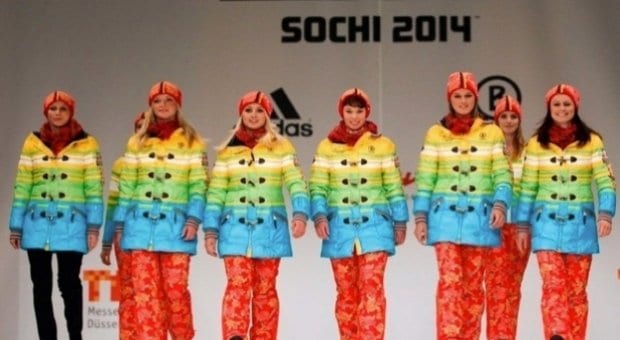Germany’s unveiling of the Olympic uniforms its athletes will wear in Sochi has raised a few eyebrows and set tongues a-wagging about whether the colourful couture is meant to be a political protest against Russia’s anti-gay legislation, which has sparked calls for a Games boycott and led to global protests.
A spokesperson for the German Olympic Confederation says that’s not the case, BuzzFeed says.
“The uniforms are not a protest,” Christian Klaue says, adding that the uniform designs were finalized before the Russia protests began.
Confederation director Michael Vesper adds, “This is just a fashionable jacket.”
Designer Willy Bogner also denies that he took his cue from the furor over the anti-gay laws, saying that he was inspired by the 1972 Munich Summer Olympics. But according to BuzzFeed, the description of the uniforms still allows for interpretive ambiguity. According to the official word on the Games’ garb, they “were created using colors and materials specially tailored to the conditions in Sochi.”


 Why you can trust Xtra
Why you can trust Xtra


